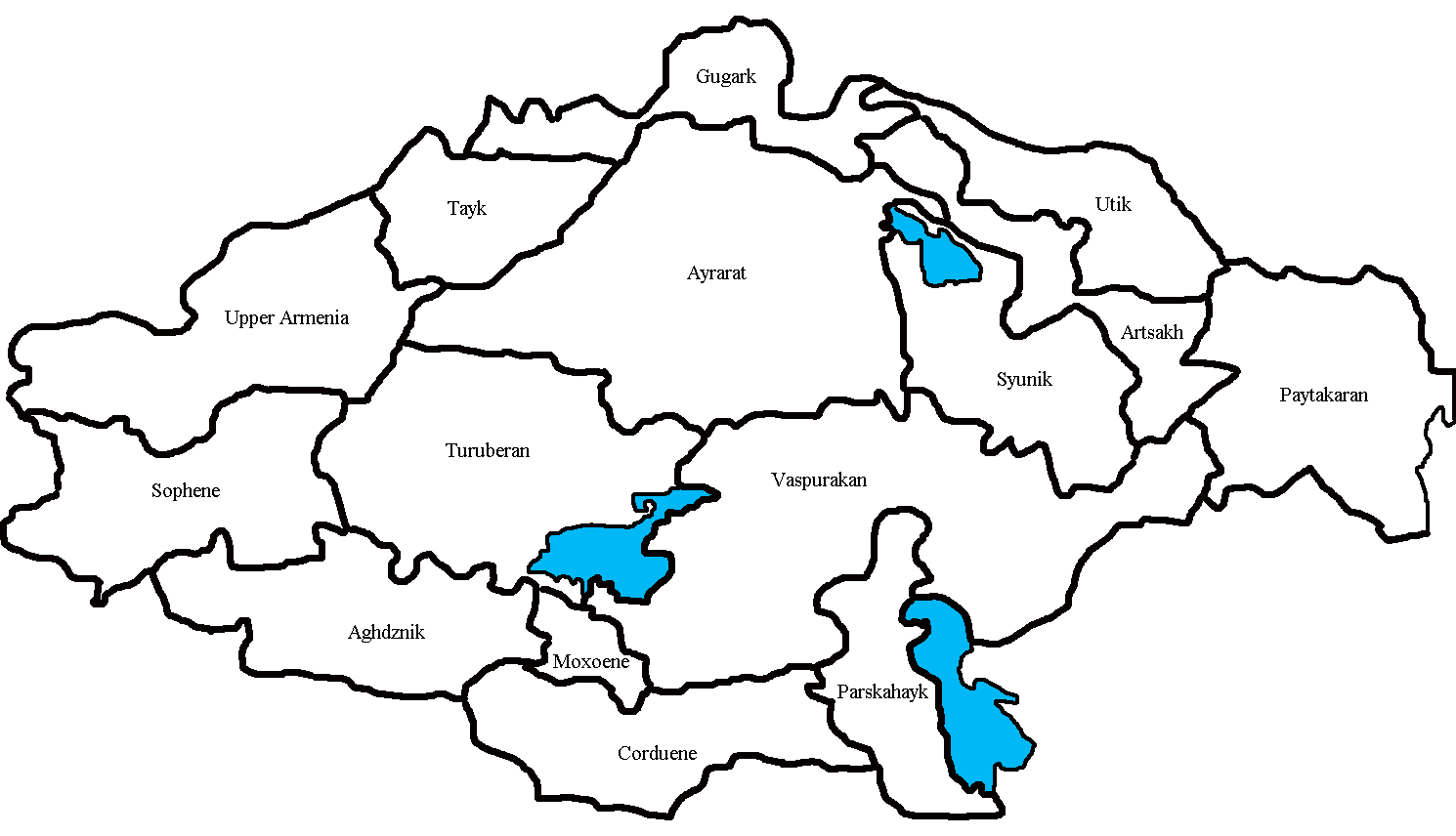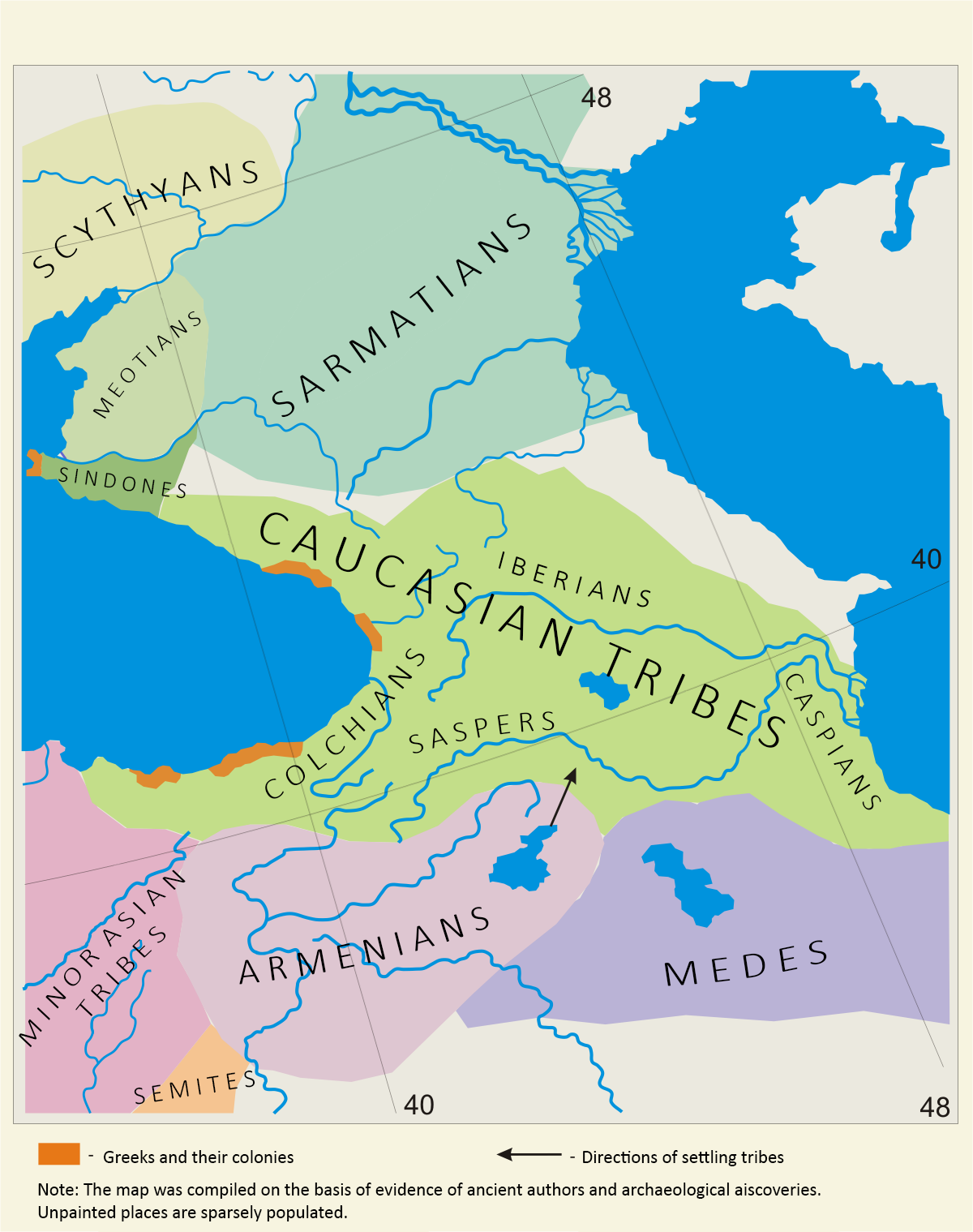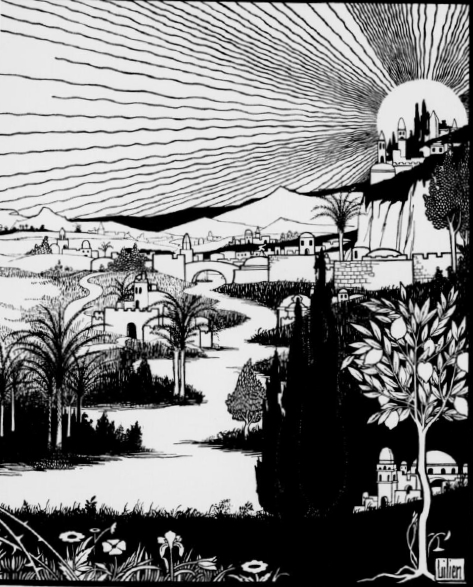|
Caspiane
Caspiane or Kaspiane ( gr, Κασπιανή, hy, Կասպք ''Kaspkʿ'') was the land populated by the tribe of Caspians, after whom it received its name. Originally a province of the Medes in the 3rd-2nd centuries BC, the land of the Caspians was conquered by the Armenians in the 2nd century BC, then passed to Caucasian Albania under Sassanid Persian suzerainty in the 5th century, and later became an independent state. In the 2nd century AD, it became known as Paytakaran, and after 387 AD became a part of the larger region of Balasakan. It roughly corresponded to the modern Mugan plain and Qaradagh regions. Return to Zion Some biblical scholars had suggested that Kasiphia from the Book of Ezra is Caspiane, due to phonetic resemblance. Ezra, who saw there were not many Levites for recreating the Hebrew worship, asked Iddo, who led the Israelites (it is not specified whether they were from the Northern Kingdom of Israel or the Kingdom of Judah) and Canaanite servants who were ex ... [...More Info...] [...Related Items...] OR: [Wikipedia] [Google] [Baidu] |
Paytakaran
Paytakaran ( hy, Փայտակարան, translit=Pʻaytakaran) was the easternmost province ( or ) of the Kingdom of Armenia. The province was located in the area of the lower courses of the Kura and Arax rivers, adjacent to the Caspian Sea. It corresponded to the territory known as Caspiane to Greco-Roman sources ( or in Armenian sources). Today, the area is located in the territory of modern-day southeastern Azerbaijan and northwestern Iran. The centre of the province was the town of Paytakaran, after which it was named. Etymology Paytakaran is interpreted as "the land of Pʻayt", applied by Medians to this territory to their north, from Median *''karan''- ("border, region, land", compare with Lankaran). ' is probably the name of a Caspian tribe. also means "wood" in Armenian, although Heinrich Hübschmann and others reject any connection with this word and believe the etymology to be non-Armenian. In the classical Armenian sources, Paytakaran is mentioned as the name of t ... [...More Info...] [...Related Items...] OR: [Wikipedia] [Google] [Baidu] |
Caucasian Albania
Caucasian Albania is a modern exonym for a former state located in ancient times in the Caucasus: mostly in what is now Azerbaijan (where both of its capitals were located). The modern endonyms for the area are ''Aghwank'' and ''Aluank'', among the Udi people, who regard themselves as descended from the inhabitants of Caucasian Albania. However, its original endonym is unknown.Robert H. Hewsen. "Ethno-History and the Armenian Influence upon the Caucasian Albanians", in: Samuelian, Thomas J. (Ed.), ''Classical Armenian Culture. Influences and Creativity''. Chicago: 1982, pp. 27-40. Bosworth, Clifford E.br>Arran ''Encyclopædia Iranica''. The name Albania is derived from the Ancient Greek name and Latin .James Stuart Olson. An Ethnohistorical Dictionary of the Russian and Soviet Empires. The prefix "Caucasian" is used purely to avoid confusion with modern Albania of the Balkans, which has no known geographical or historical connections to Caucasian Albania. Little is known of th ... [...More Info...] [...Related Items...] OR: [Wikipedia] [Google] [Baidu] |
Caspians
The Caspians ( fa, کاسپیها, ''Kaspyn''; el, Κάσπιοι, ''Káspioi''; Aramaic: ܟܣܦܝ, ''kspy''; xcl, Կասպք, ''Kaspk’''; la, Caspi, ''Caspiani'') were a people of antiquity who dwelt along the southwestern shores of the Caspian Sea The Caspian Sea is the world's largest inland body of water, often described as the world's largest lake or a full-fledged sea. An endorheic basin, it lies between Europe and Asia; east of the Caucasus, west of the broad steppe of Central Asia ..., in the region known as Caspiane. ''Caspian'' is the English version of the Greek ethnonym ''Kaspioi'', mentioned twice by Herodotus among the Achaemenid satrapies of Darius the Great and applied by Strabo. The name is not attested in Old Iranian.Rüdiger SchmittCaspians in ''Encyclopedia Iranica''. Accessed on 4 April 2010. The Caspians have generally been regarded as a pre-Proto-Indo-Europeans, Indo-European people. They have been identified by Ernst Herzfeld with the Kassite ... [...More Info...] [...Related Items...] OR: [Wikipedia] [Google] [Baidu] |
Iddo (prophet)
Iddo (Hebrew: עִדּוֹ ''ʿĪddō''; also Jedo; , ''Adei, Addō'') was a biblical prophet. According to the Books of Chronicles, he lived during the reigns of King Solomon and his heirs, Rehoboam and Abijah, in the Kingdom of Judah. Hebrew Bible Although little is known about Iddo, the Books of Chronicles say that the events of Solomon's reign, as well as Iddo's prophecies concerning king Jeroboam I of Israel, were recorded in writing. The alleged records composed by Iddo are no longer extant. He is also credited with a history of King Rehoboam and his son King Abijah. Other mentions A tradition of identifying Iddo with the unnamed prophet of 1 Kings 13 can be found in the Talmud, first-century BC Jewish historian Josephus, the fourth- and fifth-century Christian commentator Jerome, and the medieval Jewish commentator Rashi. The protagonist of 1 Kings 13 is identified simply as "a man of God" who prophesies against Jeroboam, as Iddo is said to have done elsewhere. After an unfo ... [...More Info...] [...Related Items...] OR: [Wikipedia] [Google] [Baidu] |
Historical Regions Of Iran
History (derived ) is the systematic study and the documentation of the human activity. The time period of event before the invention of writing systems is considered prehistory. "History" is an umbrella term comprising past events as well as the memory, discovery, collection, organization, presentation, and interpretation of these events. Historians seek knowledge of the past using historical sources such as written documents, oral accounts, art and material artifacts, and ecological markers. History is not complete and still has debatable mysteries. History is also an academic discipline which uses narrative to describe, examine, question, and analyze past events, and investigate their patterns of cause and effect. Historians often debate which narrative best explains an event, as well as the significance of different causes and effects. Historians also debate the nature of history as an end in itself, as well as its usefulness to give perspective on the problems of the p ... [...More Info...] [...Related Items...] OR: [Wikipedia] [Google] [Baidu] |
Historical Regions In Azerbaijan
History (derived ) is the systematic study and the documentation of the human activity. The time period of event before the invention of writing systems is considered prehistory. "History" is an umbrella term comprising past events as well as the memory, discovery, collection, organization, presentation, and interpretation of these events. Historians seek knowledge of the past using historical sources such as written documents, oral accounts, art and material artifacts, and ecological markers. History is not complete and still has debatable mysteries. History is also an academic discipline which uses narrative to describe, examine, question, and analyze past events, and investigate their patterns of cause and effect. Historians often debate which narrative best explains an event, as well as the significance of different causes and effects. Historians also debate the nature of history as an end in itself, as well as its usefulness to give perspective on the problems of the p ... [...More Info...] [...Related Items...] OR: [Wikipedia] [Google] [Baidu] |
Zion
Zion ( he, צִיּוֹן ''Ṣīyyōn'', LXX , also variously transliterated ''Sion'', ''Tzion'', ''Tsion'', ''Tsiyyon'') is a placename in the Hebrew Bible used as a synonym for Jerusalem as well as for the Land of Israel as a whole (see Names of Jerusalem). The name is found in 2 Samuel (5:7), one of the books of the Hebrew Bible dated to before or close to the mid-6th century BCE. It originally referred to a specific hill in Jerusalem ( Mount Zion), located to the south of Mount Moriah (the Temple Mount). According to the narrative of 2 Samuel 5, Mount Zion held the Jebusite fortress of the same name that was conquered by David and was renamed the City of David. That specific hill ("mount") is one of the many squat hills that form Jerusalem, which also includes Mount Moriah (the Temple Mount), the Mount of Olives, etc. Over many centuries, until as recently as the Ottoman era, the city walls of Jerusalem were rebuilt many times in new locations, so that the particular hill ... [...More Info...] [...Related Items...] OR: [Wikipedia] [Google] [Baidu] |
Jews
Jews ( he, יְהוּדִים, , ) or Jewish people are an ethnoreligious group and nation originating from the Israelites Israelite origins and kingdom: "The first act in the long drama of Jewish history is the age of the Israelites""The people of the Kingdom of Israel and the ethnic and religious group known as the Jewish people that descended from them have been subjected to a number of forced migrations in their history" and Hebrews of historical History of ancient Israel and Judah, Israel and Judah. Jewish ethnicity, nationhood, and religion are strongly interrelated, "Historically, the religious and ethnic dimensions of Jewish identity have been closely interwoven. In fact, so closely bound are they, that the traditional Jewish lexicon hardly distinguishes between the two concepts. Jewish religious practice, by definition, was observed exclusively by the Jewish people, and notions of Jewish peoplehood, nation, and community were suffused with faith in the Jewish God, ... [...More Info...] [...Related Items...] OR: [Wikipedia] [Google] [Baidu] |
King David
David (; , "beloved one") (traditional spelling), , ''Dāwūd''; grc-koi, Δαυΐδ, Dauíd; la, Davidus, David; gez , ዳዊት, ''Dawit''; xcl, Դաւիթ, ''Dawitʿ''; cu, Давíдъ, ''Davidŭ''; possibly meaning "beloved one". was, according to the Hebrew Bible, the third king of the United Kingdom of Israel. In the Books of Samuel, he is described as a young shepherd and harpist who gains fame by slaying Goliath, a champion of the Philistines, in southern Canaan. David becomes a favourite of Saul, the first king of Israel; he also forges a notably close friendship with Jonathan, a son of Saul. However, under the paranoia that David is seeking to usurp the throne, Saul attempts to kill David, forcing the latter to go into hiding and effectively operate as a fugitive for several years. After Saul and Jonathan are both killed in battle against the Philistines, a 30-year-old David is anointed king over all of Israel and Judah. Following his rise to power, David c ... [...More Info...] [...Related Items...] OR: [Wikipedia] [Google] [Baidu] |
Canaan
Canaan (; Phoenician: 𐤊𐤍𐤏𐤍 – ; he, כְּנַעַן – , in pausa – ; grc-bib, Χανααν – ;The current scholarly edition of the Greek Old Testament spells the word without any accents, cf. Septuaginta : id est Vetus Testamentum graece iuxta LXX interpretes. 2. ed. / recogn. et emendavit Robert Hanhart. Stuttgart : Dt. Bibelges., 2006 . However, in modern Greek the accentuation is , while the current (28th) scholarly edition of the New Testament has . ar, كَنْعَانُ – ) was a Semitic-speaking civilization and region in the Ancient Near East during the late 2nd millennium BC. Canaan had significant geopolitical importance in the Late Bronze Age Amarna Period (14th century BC) as the area where the spheres of interest of the Egyptian, Hittite, Mitanni and Assyrian Empires converged or overlapped. Much of present-day knowledge about Canaan stems from archaeological excavation in this area at sites such as Tel Hazor, Tel Megiddo, En Esur ... [...More Info...] [...Related Items...] OR: [Wikipedia] [Google] [Baidu] |
Kingdom Of Judah
The Kingdom of Judah ( he, , ''Yəhūdā''; akk, 𒅀𒌑𒁕𒀀𒀀 ''Ya'údâ'' 'ia-ú-da-a-a'' arc, 𐤁𐤉𐤕𐤃𐤅𐤃 ''Bēyt Dāwīḏ'', " House of David") was an Israelite kingdom of the Southern Levant during the Iron Age. Centered in Judea, the kingdom's capital was Jerusalem. The other Israelite polity, the Kingdom of Israel, lay to the north. Jews are named after Judah and are primarily descended from it. The Hebrew Bible depicts the Kingdom of Judah as a successor to the United Kingdom of Israel, a term denoting the united monarchy under biblical kings Saul, David and Solomon and covering the territory of Judah and Israel. However, during the 1980s, some biblical scholars began to argue that the archaeological evidence for an extensive kingdom before the late-8th century BCE is too weak, and that the methodology used to obtain the evidence is flawed. In the 10th and early 9th centuries BCE, the territory of Judah appears to have been sparsely populated, ... [...More Info...] [...Related Items...] OR: [Wikipedia] [Google] [Baidu] |

.jpg)

.jpg)



